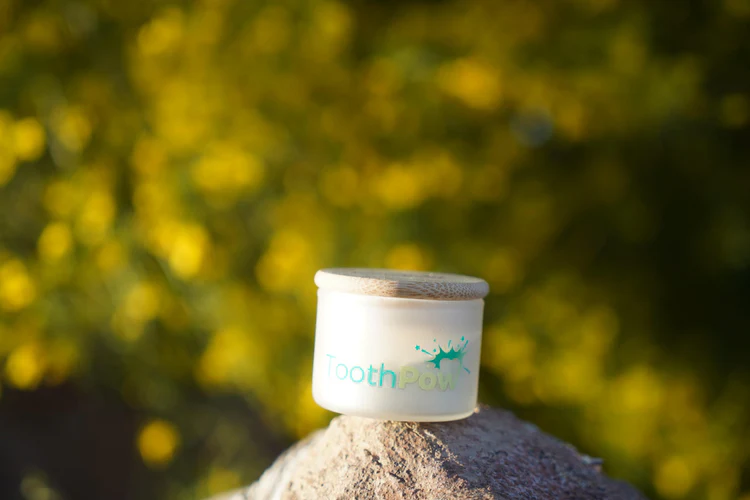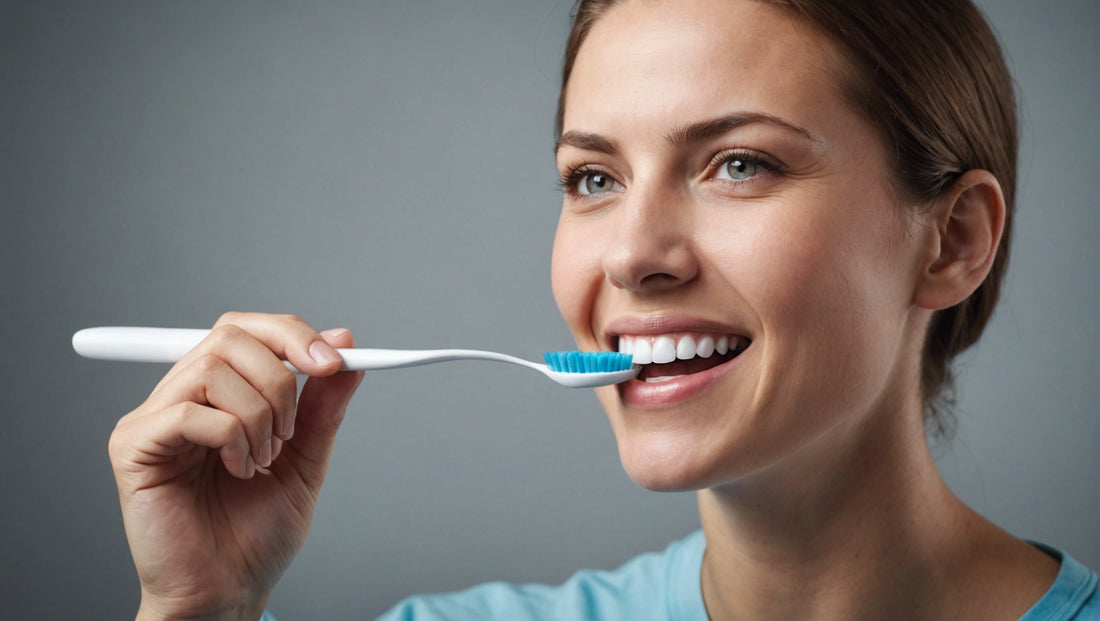Discover the secret to enhancing your oral hygiene with SLS-free toothpaste
Sodium Lauryl Sulfate (SLS) is a common ingredient in many toothpaste brands, known for its foaming properties but also for causing irritation in some individuals. By opting for SLS-free toothpaste, you can avoid potential side effects and experience a gentler, yet effective, oral care routine. This revolutionary approach to dental health not only promotes a soothing brushing experience but also contributes to maintaining a healthier mouth. Say goodbye to unnecessary chemicals and hello to a natural, refreshing way to care for your teeth and gums. Join us as we delve into the world of SLS-free toothpaste and unlock the benefits it offers for your overall oral well-being. Let's explore how this simple switch in your dental care regimen can make a significant difference in the health and vitality of your smile.
Section: The Impact of SLS on Oral Hygiene
SLS, or Sodium Lauryl Sulfate, is a common surfactant found in many oral care products, particularly toothpaste. In this section, we delve deeper into the impact of SLS on oral hygiene, exploring its benefits, potential drawbacks, and side effects.
Benefits of SLS in toothpaste:
Foaming Agent: SLS creates the foaming action in toothpaste, aiding in the even distribution of the paste throughout the mouth, ensuring thorough cleaning.
Effective Cleaning: SLS's excellent cleaning properties help in the removal of food particles, bacteria, and plaque from teeth and gums, promoting oral health.
Antimicrobial Properties: SLS exhibits antimicrobial effects, assisting in reducing harmful bacteria in the mouth, which can contribute to improved oral hygiene.
Flavor Enhancement: SLS can enhance the flavor of toothpaste, making the brushing experience more pleasant for users.
Safety in Approved Concentrations: When used in approved concentrations, SLS is considered safe for oral care products and has been extensively studied for its efficacy.
Potential drawbacks and side effects of SLS in oral care products:
Oral Irritation: Some individuals may experience oral irritation, including mouth ulcers or canker sores, due to the abrasive nature of SLS.
Dry Mouth: SLS can contribute to dry mouth in some users, which may lead to discomfort and an increased risk of oral health issues.
Disruption of Oral Microbiome: SLS may disrupt the natural balance of oral microbiota, potentially impacting overall oral health.
Environmental Concerns: The production and disposal of products containing SLS can have environmental implications, contributing to water pollution.
Allergic Reactions: Individuals with sensitivities to SLS may experience allergic reactions, such as itching or rash, necessitating the use of alternative products.
While SLS offers several benefits in toothpaste, it is essential for consumers to be mindful of these potential drawbacks and side effects. Individuals with sensitive oral tissues or specific oral health conditions should consult their dentist before using products with SLS. Additionally, exploring SLS-free alternatives may be beneficial for those seeking gentler oral care options.
By understanding the impact of SLS on oral hygiene, consumers can make informed choices regarding their oral care products, prioritizing both effectiveness and safety. It is crucial to weigh the benefits against the potential risks and choose products that align with individual oral health needs and preferences.

Benefits of Using SLS-Free Toothpaste
When it comes to oral hygiene, choosing the right toothpaste is crucial. One popular option that has gained traction in recent years is SLS-free toothpaste. SLS, or sodium lauryl sulfate, is a common ingredient in many toothpaste brands that creates the foaming action typical of toothpaste. However, some people may experience sensitivity or irritation from SLS, leading them to seek out alternatives.
One of the primary benefits of using SLS-free toothpaste is its gentle cleaning properties, making it ideal for individuals with sensitive teeth and gums. The absence of SLS reduces the likelihood of irritation, making the brushing experience more comfortable and enjoyable.
Furthermore, SLS-free toothpaste promotes improved oral hygiene and overall health. By eliminating this potentially irritating ingredient, users can maintain a healthier mouth environment, potentially reducing the risk of oral health issues in the long run.
In addition to these benefits, SLS-free toothpaste is often formulated with natural ingredients that provide additional advantages. Ingredients like aloe vera, tea tree oil, and coconut oil can offer antibacterial and anti-inflammatory properties, further enhancing the toothpaste's effectiveness in promoting oral health.
Another advantage of SLS-free toothpaste is its contribution to environmental sustainability. Many SLS-free toothpaste brands prioritize eco-friendly packaging and sustainable sourcing practices, appealing to consumers who are conscious of their environmental impact.
Switching to SLS-free toothpaste not only benefits individual oral health but also aligns with broader trends towards natural and sustainable products. By making this simple change to your oral care routine, you can support both your well-being and the planet.
Opting for SLS-free toothpaste can offer a gentler and more effective oral care routine, particularly for those with sensitivity concerns. Making the switch to SLS-free toothpaste may lead to a more comfortable brushing experience and contribute to better oral health outcomes.
Moreover, SLS-free toothpaste is often free from artificial colors and flavors, appealing to individuals seeking a more natural approach to oral care. The absence of these additives reduces the risk of allergic reactions and sensitivities, making SLS-free toothpaste a suitable choice for a wide range of users.
Additionally, some studies suggest that SLS may interfere with the normal function of taste buds, potentially affecting one's sense of taste. By choosing SLS-free toothpaste, individuals can enjoy a more natural taste experience without the potential interference caused by this foaming agent.
Furthermore, the gentle nature of SLS-free toothpaste makes it a suitable option for children or individuals undergoing certain dental treatments. Its mild formulation can help prevent further irritation or discomfort, making it a versatile choice for various oral care needs.
Overall, the benefits of using SLS-free toothpaste extend beyond individual oral health to encompass environmental considerations, personal preferences, and potential health advantages. By embracing this alternative to traditional toothpaste formulations, individuals can take a step towards a more holistic approach to oral care that prioritizes both well-being and sustainability.
Choosing the Right SLS-Free Toothpaste
Choosing the right toothpaste is crucial for maintaining optimal oral health. When it comes to selecting an SLS-Free toothpaste, there are several key factors to consider to ensure you make the best choice for your dental care routine.
First and foremost, the absence of SLS (Sodium Lauryl Sulfate) in toothpaste can be beneficial for individuals with sensitive mouths or those prone to canker sores. SLS is a common ingredient in many toothpaste formulations and is known to cause irritation in some people. By opting for an SLS-Free toothpaste, you can reduce the likelihood of experiencing any discomfort or adverse reactions.
In addition to avoiding SLS, it's essential to look for toothpaste that contains ingredients that promote overall oral health. Ingredients like fluoride play a crucial role in preventing tooth decay and strengthening enamel. Furthermore, the inclusion of antibacterial agents such as tea tree oil or xylitol can help combat harmful bacteria in the mouth, reducing the risk of cavities and gum disease.
When considering different toothpaste options, take into account your specific dental needs. If you have sensitive teeth, look for a toothpaste designed to alleviate sensitivity and provide relief. For individuals with a preference for natural products, there are SLS-Free toothpaste options that utilize plant-based ingredients and essential oils to deliver effective oral care without artificial additives.
Moreover, exploring alternative toothpaste formulations can offer unique benefits. Charcoal toothpaste, for example, is gaining popularity for its ability to whiten teeth naturally by adsorbing surface stains. Clay-based toothpaste, on the other hand, can help detoxify the mouth and promote a healthy oral environment.
Selecting the right SLS-Free toothpaste involves a thoughtful consideration of ingredients, personal preferences, and oral health needs. By choosing a toothpaste that aligns with your values and addresses your specific concerns, you can maintain a healthy and vibrant smile. Remember to consult with your dentist or oral health professional for personalized recommendations tailored to your individual oral care requirements.
Making the Switch to SLS-Free Toothpaste
Making the switch to SLS-free toothpaste can be a positive step towards a healthier oral care routine. Sodium Lauryl Sulfate (SLS) is a common ingredient in many toothpaste brands, known for its foaming properties but also linked to potential oral health issues for some individuals. Transitioning to SLS-free toothpaste may require some adjustments, but with the right tips and guidance, it can be a smooth process. Additionally, maintaining good oral hygiene with SLS-free options is essential for ensuring your teeth and gums stay healthy and clean. Explore the world of SLS-free toothpaste and discover the benefits it can offer for your dental care.
When switching to SLS-free toothpaste, it's important to look for alternatives that are gentle yet effective. Many SLS-free toothpaste options contain natural ingredients like baking soda, fluoride, and essential oils that can help maintain oral health without the potential side effects of SLS. Consider trying different brands and flavors to find the one that suits your preferences and needs best.
To maintain good oral hygiene with SLS-free toothpaste, remember to brush your teeth at least twice a day for two minutes each time. Use a soft-bristled toothbrush to avoid damaging your gums and enamel. Don't forget to floss daily and rinse with an alcohol-free mouthwash to complete your oral care routine.
In addition to using SLS-free toothpaste, consider incorporating other oral care practices like tongue scraping and oil pulling for a comprehensive approach to dental health. Regular dental check-ups and cleanings are also crucial for detecting any issues early and keeping your smile bright and healthy.
By making the switch to SLS-free toothpaste and adopting a holistic approach to oral care, you can promote long-term dental health and enjoy a fresh, clean mouth without compromising on quality or effectiveness.
When choosing an SLS-free toothpaste, it's essential to understand the ingredients and their benefits. Look for toothpaste that contains fluoride to help prevent cavities and strengthen tooth enamel. Baking soda is a gentle abrasive that can help remove surface stains and plaque buildup. Essential oils like peppermint or tea tree oil not only freshen breath but also have antibacterial properties that can support oral health.
In addition to brushing and flossing, consider using a mouthwash that is free from alcohol and artificial dyes. Alcohol-free mouthwashes are gentler on the mouth and can help maintain a healthy balance of oral bacteria. Some natural mouthwashes contain ingredients like aloe vera or green tea extract, which can soothe gums and provide additional oral health benefits.
For those with sensitive teeth or gums, SLS-free toothpaste can be a game-changer. SLS has been known to cause irritation in some individuals, leading to mouth sores or dryness. By switching to a gentler formula, you can reduce the risk of these side effects and promote overall oral comfort. Look for toothpaste specifically designed for sensitive teeth, which often contain ingredients like potassium nitrate to help desensitize teeth and provide relief.
Remember that the transition to SLS-free toothpaste may take some time for your mouth to adjust. If you experience any discomfort or sensitivity during the switch, give your mouth a few days to adapt before making a decision. In most cases, any initial issues will resolve as your oral microbiome rebalances and becomes accustomed to the new toothpaste formula.
Making the switch to SLS-free toothpaste is a positive step towards improving your oral health and overall well-being. By choosing gentle yet effective alternatives, maintaining good oral hygiene practices, and seeking regular dental care, you can enjoy a healthy smile for years to come. Embrace the benefits of SLS-free toothpaste and experience the difference it can make in your dental care routine.
Conclusion:
Making the switch to SLS free toothpaste can significantly enhance your oral hygiene routine. By opting for toothpaste without Sodium Lauryl Sulfate (SLS), you can reduce the risk of irritation and sensitivity while still effectively cleaning your teeth and gums. Remember, a healthy mouth is key to overall well-being. To explore a range of SLS free toothpaste options and take your oral care to the next level, visit. toothpow.com . Your smile will thank you!


